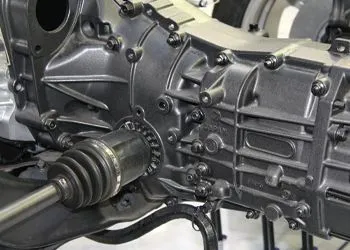5 Ways that Drivers Can Protect their Transmissions’ Health

Your car’s transmission is one of its most critical components, responsible for transferring power from the engine to the wheels. By taking proactive measures to care for your transmission, you can avoid costly repairs and keep your car running more efficiently. At Waterloo Transmissions, we provide expert transmission maintenance in the greater Akron area. Here’s a look at five tips for a healthy transmission.
Stay on Top of Fluid Maintenance
Transmission fluid is essential for lubrication, cooling, and proper shifting. Over time, the fluid can become contaminated or lose its effectiveness. Checking the fluid level regularly and replacing it according to your manufacturer’s recommended schedule is vital. Low or dirty transmission fluid can lead to overheating and premature wear, so it’s important to keep it clean and at the proper level.
Avoid Overheating the Transmission
Excessive heat can lead to major transmission issues. Driving in extreme conditions and towing excessively heavy loads can put extra stress on your transmission. If you haul large loads, it’s important that you’re remaining within a safe capacity.
Use the Right Transmission Fluid
Not all transmission fluids are the same, and using the wrong type can cause significant problems. Consult your vehicle’s owner’s manual to determine the specific fluid recommended for your make and model. Using high-quality fluid designed for your transmission will promote proper performance and protect against wear and tear.
Practice Smooth Driving Habits
Your driving habits have a direct impact on the health of your transmission. Avoid aggressive acceleration and braking, which can strain the transmission. Also, shifting into drive or reverse before your car comes to a complete stop can cause unnecessary stress on the gears. Driving smoothly and mindfully can go a long way in preserving your transmission.
Schedule Regular Inspections and Maintenance
Routine maintenance is crucial for catching transmission issues before they escalate. Regular inspections by a qualified mechanic can help identify potential problems, such as leaks or worn components. Addressing these issues early can save you from expensive repairs and ensure your transmission continues to operate efficiently.
Transmission Service in Akron, OH
For top-quality
transmission service in Akron, Canton, and Dover, OH, contact Waterloo Transmissions. Our local transmission mechanics can expertly address your vehicle’s transmission needs in Akron and the surrounding area!





